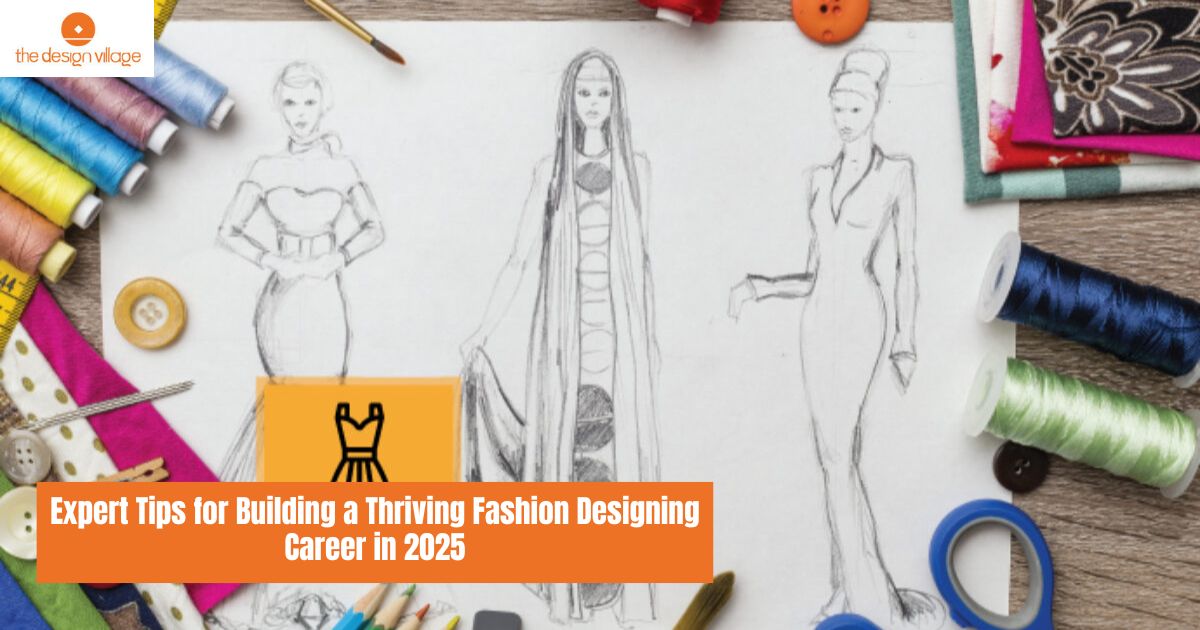The world of fashion continues to evolve with each passing year, and 2025 is no exception. Aspiring designers have countless opportunities to leave their mark, but achieving success in this competitive industry requires strategy, passion, and a strong foundation. Whether you’re pursuing a bachelor of fashion design or planning to, this guide offers expert tips to help you thrive in your journey.
Invest in the Right Education
One of the first steps to becoming a successful fashion designer is obtaining the right qualifications. A fashion design bachelor degree not only provides technical expertise but also nurtures your creativity. Programs like the Bachelor of Fashion Design offer courses in sketching, textile knowledge, pattern-making, and fashion marketing, all of which are critical for a solid foundation.
When choosing your degree, research colleges that offer specialized training, mentorship programs, and industry exposure. Internships during your education can further enhance your understanding of real-world challenges.
Stay Ahead with 2025 Fashion Predictions
Fashion thrives on foresight, and designers who can anticipate trends often lead the pack. Some 2025 fashion predictions include a stronger emphasis on:
- Sustainability: With consumers increasingly favoring eco-friendly options, designing with recycled materials or zero-waste patterns is a must.
- Tech-Infused Fashion: Wearable technology, smart fabrics, and 3D printing are gaining traction. Understanding these trends can set you apart.
- Minimalist Luxury: Clean lines and simple yet elegant designs are making a comeback, appealing to modern, conscious consumers.
Stay updated on these predictions by following fashion influencers, attending industry events, and reading reports from leading fashion consultancies.
Build a Standout Portfolio
Your portfolio is your ticket to success. Whether applying for a job, internship, or launching your label, a well-curated portfolio showcases your skills and vision. Include:
- Original sketches and designs.
- Photos of completed garments or collections.
- Inspiration boards that reflect your thought process.
Digital portfolios are also becoming a standard. Platforms like Behance and personal websites offer a professional way to display your work.
Gain Practical Experience
Fashion design is as much about hands-on experience as it is about creativity. Intern with established designers, participate in fashion shows, or work at a retail brand to understand the intricacies of the industry. These experiences offer insights into:
- Customer preferences and feedback.
- Supply chain and production challenges.
- Networking opportunities with industry professionals.
Many top fashion houses prioritize hiring individuals who have both academic knowledge and practical exposure.
Learn the Business Side of Fashion
While creativity is vital, understanding the business aspect of fashion is equally important. A degree for fashion designers often includes courses on fashion merchandising, branding, and marketing. These skills will help you:
- Manage budgets effectively.
- Promote your designs.
- Build a sustainable brand.
In 2025, digital marketing and e-commerce skills are especially crucial. Familiarize yourself with social media algorithms, influencer collaborations, and online storefront management to stay competitive.
Leverage Technology
The integration of technology into fashion is revolutionizing the industry. Designers equipped with tech skills are in high demand. Consider learning:
- CAD Software: Tools like Adobe Illustrator and CorelDRAW help bring your designs to life digitally.
- 3D Design Tools: Programs such as CLO 3D and Marvelous Designer enable virtual garment creation.
- AI and Data Analytics: These are increasingly used for trend forecasting and consumer behavior analysis.
Being tech-savvy can give you a significant edge in shaping the future of fashion.
Develop a Personal Brand
Your personal brand is your identity in the fashion world. Build a distinctive style that sets you apart and reflects your creativity. Establishing an online presence is key in today’s digital-first environment. Use platforms like Instagram, Pinterest, and TikTok to showcase your designs and connect with potential clients or collaborators.
Consider launching a blog or YouTube channel to share insights, tutorials, or behind-the-scenes content. These platforms not only amplify your reach but also help build trust and credibility in the industry.
Stay Resilient and Adaptable
The fashion industry is dynamic, and challenges are inevitable. Staying resilient and open to feedback is crucial for growth. Keep experimenting with designs, learning from critiques, and adapting to changes in consumer preferences or technology.
Network with Industry Leaders
Building a strong professional network can open doors to opportunities you might not find otherwise. Attend fashion shows, seminars, and workshops to meet industry experts. Join communities or associations for fashion designers to stay informed and connect with like-minded individuals.
Explore Specializations
Fashion is a vast field, and specializing can set you apart. Consider areas like:
- Luxury Fashion: Focusing on high-end designs.
- Sportswear Design: A growing segment driven by active lifestyles.
- Sustainable Fashion: Catering to environmentally conscious consumers.
Choosing a niche within your bachelor of fashion design program can position you as an expert in that area.
Conclusion
Building a thriving career in fashion designing in 2025 requires more than just creative talent. With a robust educational foundation, a clear understanding of industry trends like 2025 fashion predictions, and practical experience, you can set yourself up for long-term success. Pursuing a fashion design bachelor degree equips you with the necessary skills, while leveraging technology and networking amplifies your reach.
By staying adaptable, continuously learning, and building a personal brand, you can confidently step into the competitive yet rewarding world of fashion design. The future of fashion is in your hands—make it stylish and sustainable!




